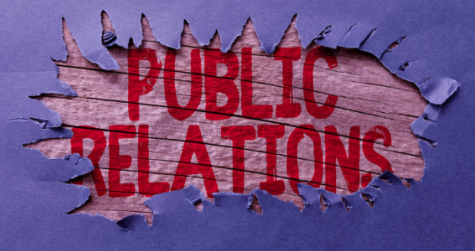Creators vs curators: the battle for power

People often await the release of their favorite artists’ new songs; however, people often do not know the label releases their music, not the artists themselves. Despite being in such close relations, the relationship between the artist and their label is often a bad one.
Record labels are not necessarily needed for an artist to come to prominence and become mainstream but can be extremely useful. These labels sign a young artist in a contract with the hopes that they will come to prominence and make large profits. Unfortunately, not all artists pay attention to the contract when signing. The contract oftentimes is where the problems between artists and labels lie.
“I think that artists are viewed as disposable and are seen as checks, they are the only way the label makes money, and they don’t really see them as people,” sophomore Christian Flucas said.
This was evident even with one of the most popular artists of all time, Michael Jackson. In 2002, Jackson accused his label (Sony Corp) of being racist, stating, “The recording companies really, really do conspire against the artists — they steal, they cheat, they do everything they can, [especially] against the black artists.”
However, without the artist, the label would not be able to profit.
“They know that’s what makes their money, and the more the artist succeeds, the more money the label gets also. So if the artist fails, then the label will lose money, so they will do all they can to push out their artist’s music,” basketball coach Keith Mason said.
On top of many questioning whether the labels really value their assets, the artists themselves often have problems with labels taking more money than they think is fair.
“If you don’t have the talent of the person recording, then there would be no reason to get the music out there, so I would say the split should be around 70/30% favoring the artist,” Mason said.
This problem was apparent when Chuck D, a lead member from the group Public Enemy sued their record label Eastlink Productions because his group was only making 18% of the revenue from their digital sales. He was arguing that they should have been making about 50%.
“I believe that artists should get the majority of the money made from any of their songs or albums,” senior Dominick Moye said.
Furthermore, some artists have reached a breaking point with their labels, causing them to split in dramatic fashion.
“If I was trapped in the label, I would try to negotiate with them. But if they didn’t listen to me, then I would refuse to drop music until they fixed the problem, or I would leave,” Flucas said.
One of the most recognizable artists of all time, Snoop Dogg, had his ups and downs with his label. The problem was so bad in 1998 that he released a song titled “Death Row Killa” due to the fact that his label, Death Row, was keeping his money and taking his publishing rights. As a result, he soon signed with Master P, who came in and offered Death Row a far better deal they could not resist.
“If I was an artist that was getting treated unfairly, I would either leave my label or I would negotiate until there is a fair deal made,” Moye said.
Oftentimes as a young artist, the only thing that is thought about is the money. However, legal action needs to be taken care of as well.
“They may sign it without even reading it, which is why it is very important that you maybe have a lawyer go in with you so that they can look at it of you don’t understand it as much to see those fine print things because if you sign your name to it [the contract], then you have to do whatever the label wants you to do,” Mason said.
Record labels and their artists are always going to coexist due to the nature of the business that is releasing music, whether they can do it peacefully is the concern.

This is CYRUS ARNESON. He's senior staff writer and this is his first year writing for the SPARTAN SHIELD. CYRUS plays on the varsity soccer team and is...




